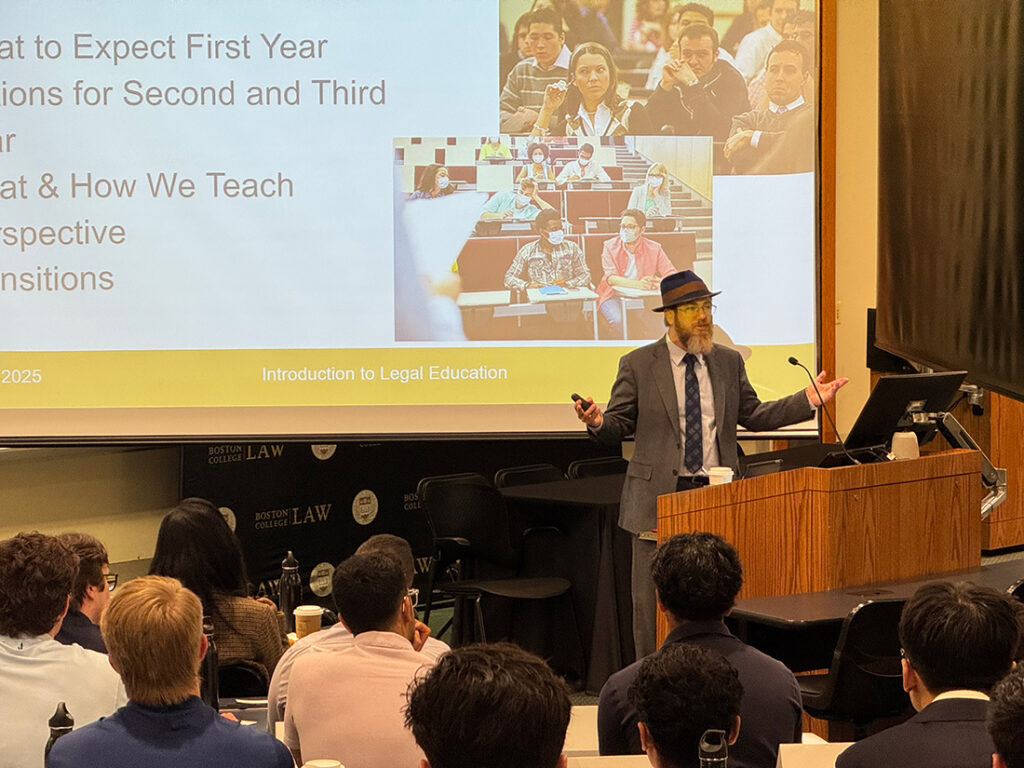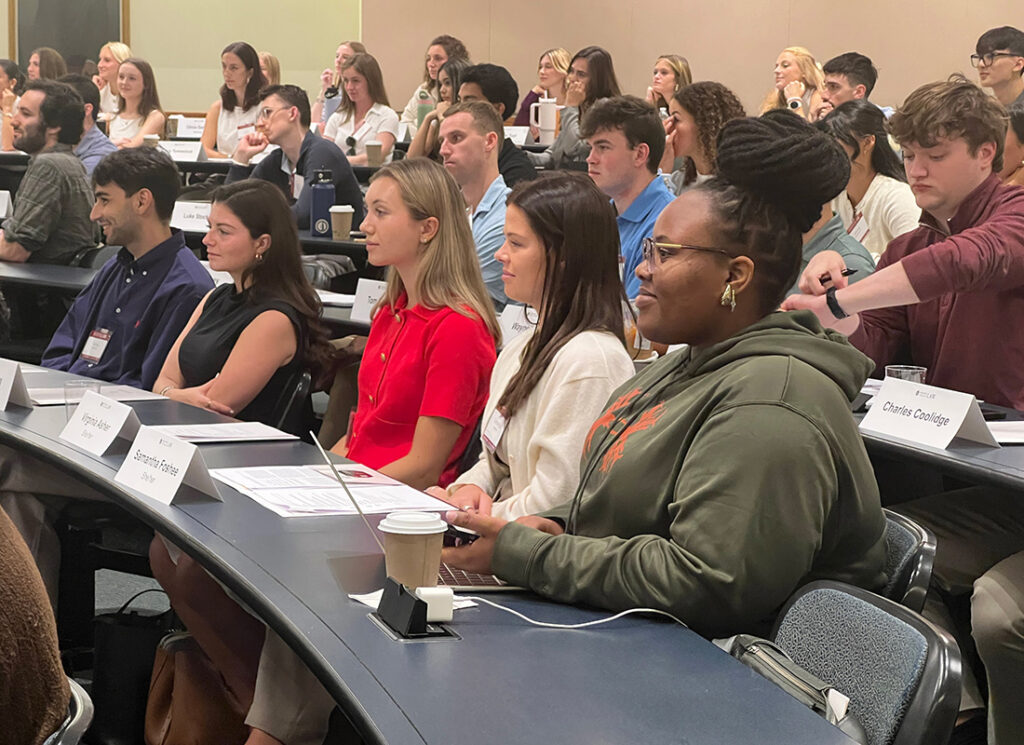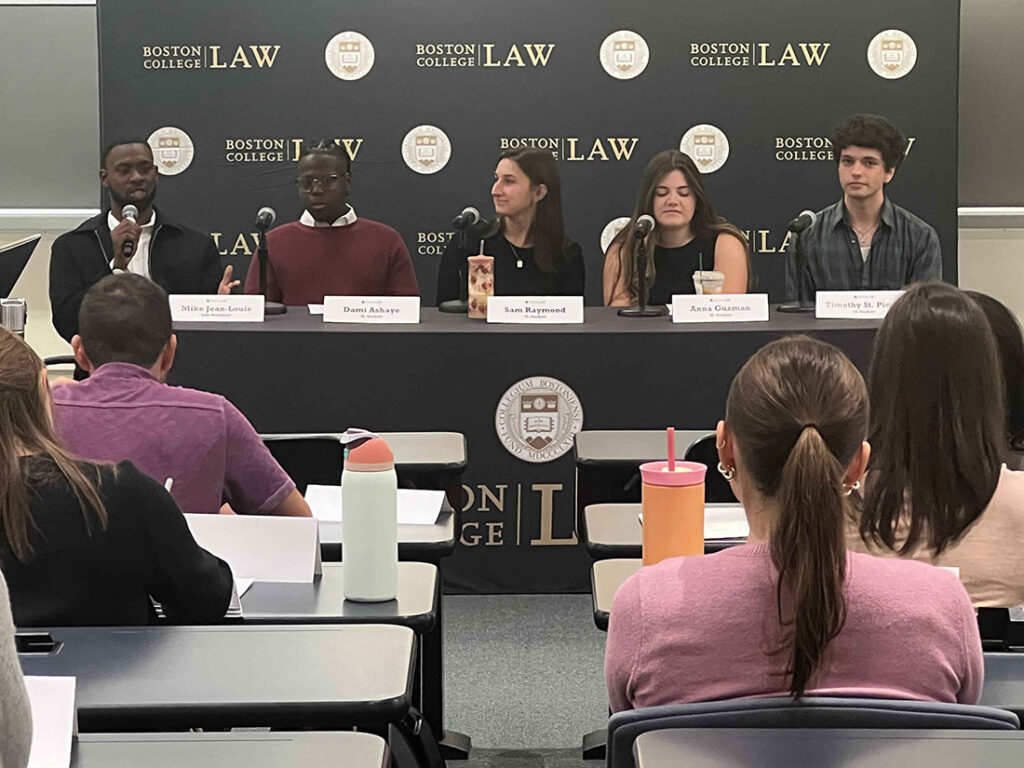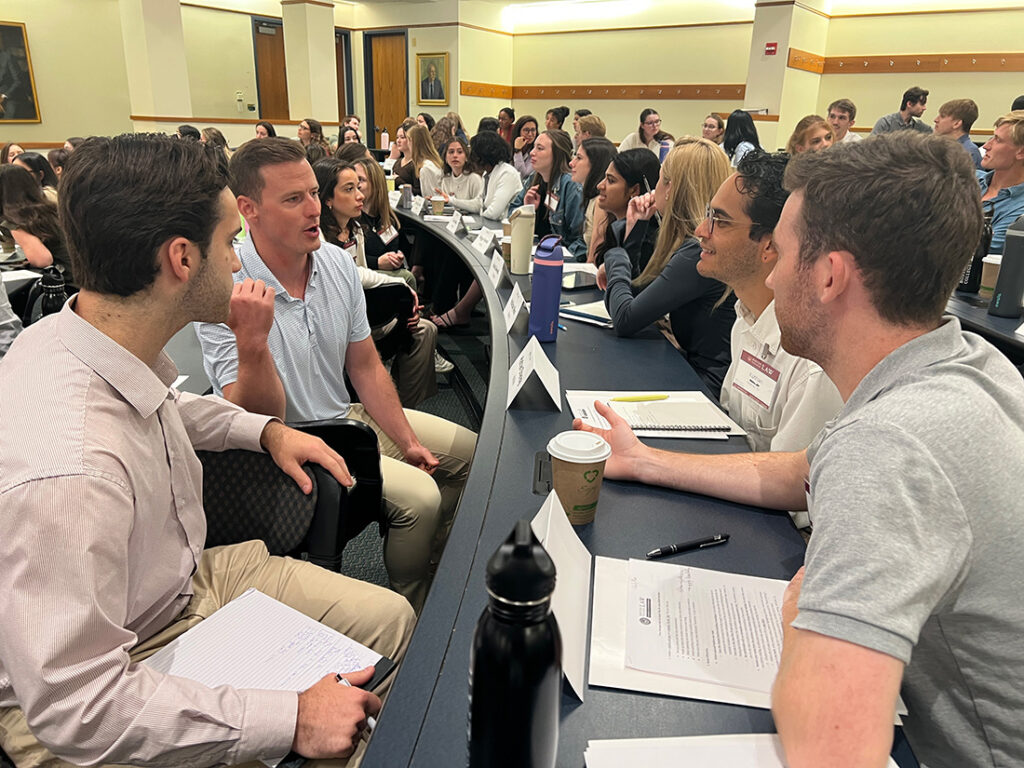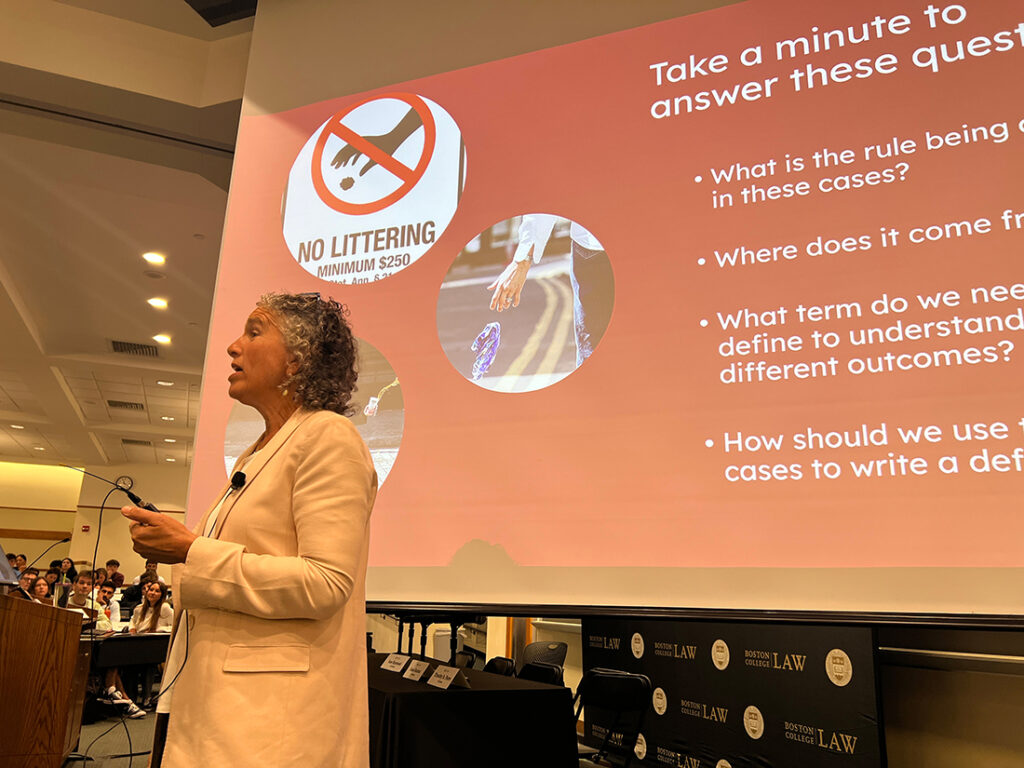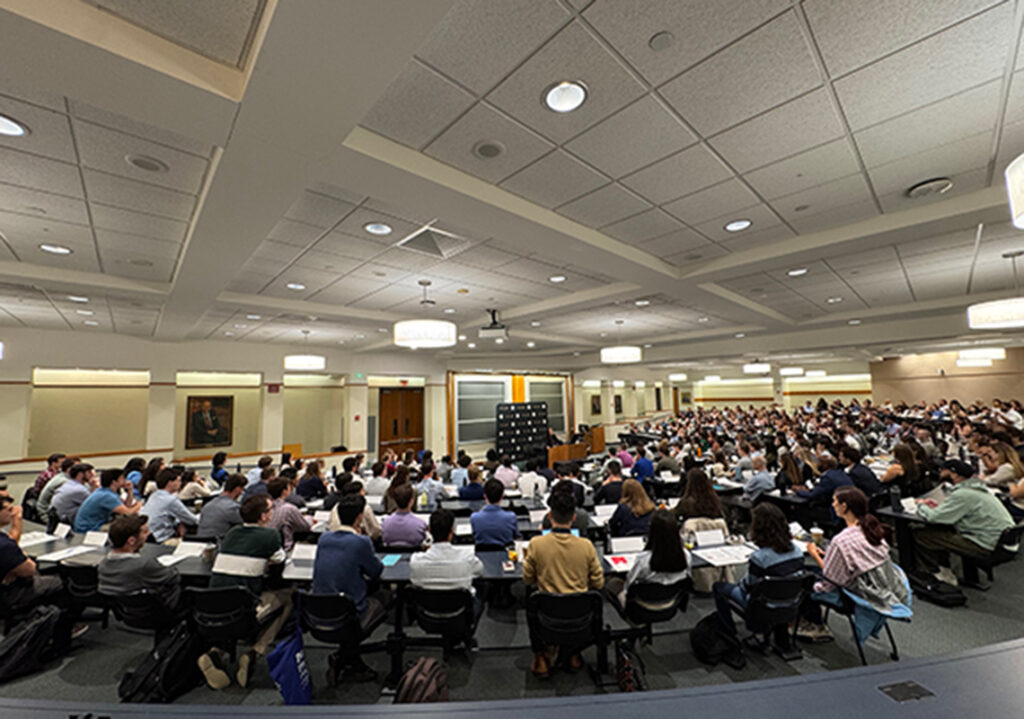August 20 marked the Class of 2028’s opening day of Orientation at Boston College Law School. Out of an applicant pool of more than 7,500 candidates, the new members of the BC law community hold a median profile of a 168 LSAT score and an undergraduate GPA of 3.83, the highest in the Law School’s history.
“I want to thank each of you for embarking on the important and sometimes challenging path toward becoming an attorney,” said Odette Lienau, the Marianne D. Short, Esq., Dean, in her address to the class. “Since I arrived at this incredible place, not quite three years ago, one thing has stood out to me so clearly: BC Law is shaped by its people. Our students and alumni—and my faculty and administrative colleagues—give this place life and carry its mission. You are a part of this now too. And we are truly excited to see how you strengthen and shape this community in the coming years.”
Kamil Brown, director of admissions and financial aid, was also among the faculty, staff, and students who welcomed the 221 1Ls over a three-day orientation. “I had the pleasure of meeting many of you during the recruitment season and at Admitted Students Day in March, and I am happy to see you back here today in your elevated status,” he said.
“The 2024–2025 admissions cycle was among the most competitive we have seen in recent years, driven in part by the surge in applications that often accompanies a presidential election year,” Brown said, noting that in this cycle, application volume increased by 22% nationwide and 27% in the New England region, while BC experienced a 25% increase. Beyond the sheer increase in volume, there were more applications from candidates with exceptionally strong profiles for BC.
“This required an even greater degree of time, diligence, care, and patience—both on our part and on the part of our applicants,” Brown explained. “The convergence of these factors helped us to recruit, admit, and yield one of our strongest 1L classes.”
In his address, Brown also drew a portrait of the class.
Fifty-one percent of the class are women, and 30% identify as Black, Indigenous, and People of Color (BIPOC). Six parents are in the class. Other defining characteristics are age range—the youngest is 21, the eldest is 36, the median is 24—and advanced-degree holders number 26. More than half the class (54%) is bilingual, 27 are trilingual, and two can speak four languages.
Also, 57% of the class has at least two years of work experience. Such endeavors range from radio host, to baseball Olympian, to Fulbright scholar, to federal servant in Congress and the departments of commerce, defense, and treasury. Others have worked in business, finance, marketing, data analytics, creative arts, engineering, science, and sports. The 10 active military members and veterans have collectively accrued 55 years of service across four branches.
This year’s class comes from 112 colleges and universities. Among the most heavily represented feeder schools in Massachusetts are UMass Amherst, Tufts, Northeastern, Boston University, and BC (26 are now double Eagles). The top nationwide schools that each have three or more students represented in the class include: Bowdoin, Brown, Florida State, George Washington, Georgetown, Michigan, Notre Dame, Ohio State University–Columbus, Syracuse, UCLA, UVA, Villanova, and Yale. The new students hail from 37 states and Washington, DC, a number that exceeds the last five 1L classes.
In her parting words, Dean Lienau offered the Class of 2028 this advice and encouragement. “In the great tradition of BC Law students past, hold each other up—as you all find your own way. We are here for you, and rooting for you, and excited for you. If you put in the attention, and the hard work, this is a journey that can reward you with practical skills—useful to yourself and to others. And offer the kinds of broader insights and sense of meaning that last a lifetime.”
